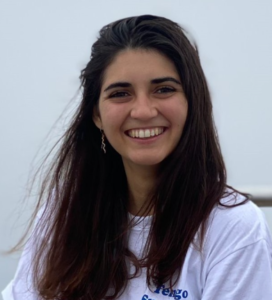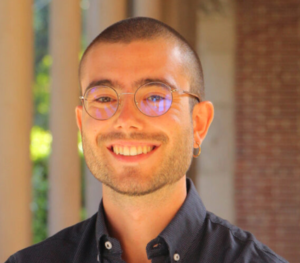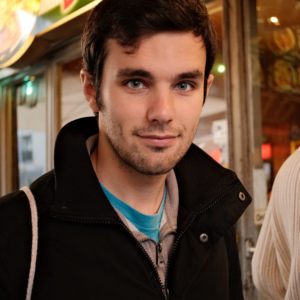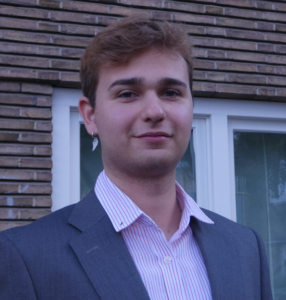LBL back home 4 Xmas 2024
Asistencia presencial: Aula E1-1-01, Campus de Córdoba (Calle Escritor Aguayo, 4).
Program:
Session 1 (11:00 – 11:30):

Speaker: Mónica Vasco (University of Southern California)
Title: «Perception of social network relationships among adolescents», with P. Brañas-Garza, J. Kovářík, and F. Mengel.
Abstract: Social structures also exist in our minds, and these cognitive representations of networks can significantly differ from actual social network configurations. To understand how people perceive their networks, it is essential to evaluate their ability to recognize their direct relationships. In this study, we gathered data on friendships and enmities, as well as beliefs about these ties, from 3,077 students (aged 10-23) in Spanish secondary schools. Our findings reveal that students correctly identified 70.51% of their friendships but only 29.71% of their enmities. Additionally, a mere 0.29% of students accurately assessed all their relationships. We also uncovered several interesting dimensions of heterogeneity. While there are no gender differences in general, same-gender relationships are more accurately predicted than cross-gender ones, and males are better at predicting cross-gender ties than females. Moreover, students who more accurately estimate their networks tend to be older, possess higher cognitive abilities, and occupy specific positions within their networks. Finally, our analysis highlights that victims of bullying exhibit even lower accuracy, struggling not only to identify their friends but also to recognize their enemies, underscoring the cognitive and social challenges faced by these individuals.
Session 2 (11:30 – 12:00):

Speaker: Juan B. González (University of Southern California)
Title: «The Impact of Crime Perception on Public Transport Demand: Evidence from Six Latin American Capitals», with S. de Martini, and S. Perez-Vincent.
Abstract: Public urban transportation systems are essential for mitigating climate change, leading policymakers to intensify efforts to boost ridership. However, there is not much evidence showing up to what extent, in regions with high crime rates like Latin America, crime perception could limit these efforts. This paper studies the impact of crime and crime perception on public transport demand across six Latin American capitals. Using a sample of 5,160 participants, we conduct three preregistered experiments to quantify the impact of crime on public transport choices and policy preferences. In the first experiment, we estimate the willingness to pay for safety by offering participants a choice between buses with varying crime rates and fares. We find that users place a substantial premium (51% of the current bus ticket) on safer transport options. The second experiment explores the substitution effect between private and public transport, revealing that higher crime rates diminish the likelihood of choosing public transport, even when offered at a reduced fare. The third experiment examines how crime perception influences public support for different transport policies. Our results show that a higher crime perception shifts support toward crime reduction initiatives at the expense of service efficiency and environmental policies. These results highlight the need for policies that integrate safety improvements to increase public transport ridership and contribute to climate change mitigation.
Session 3 (12:00 – 12:30):

Speaker: Ignacio Garijo Campos (Loyola University)
Title: «Spain v. Temporality: The Impact of the 2021 Labor Reform».
Abstract: Temporary jobs are correlated with lower human capital investment, productivity, salaries and worse working conditions. As the share of temporary workers in Spain doubles that of the EU, the latest Spanish labor reform banned the creation of project-based contracts, responsible for 40% of all temporary arrangements. Using administrative panel data, a cohort level Two-Way-Fixed-Effect approach has been conducted to assess the impact of this ambitious reform. Results show that the policy managed to reallocate workers into permanent contracts without increasing unemployment. Furthermore, while the conditions of former project-based workers improved, permanent jobs have become less stable on average as a result of the absorption of these workers.
Session 4 12:30-13:00

Speaker: Iván Sanchez Rubio (Utrecht University)
Title: «Impact of the outbreak of the Russo-Ukrainian War on German citizens’ attitudes towards the green energy transition».
Abstract: The Russo-Ukrainian War has dramatically reshaped the global energy landscape, with significant implications for Germany’s green energy transition. Amidst rising energy prices and heightened geopolitical tensions, this thesis explores how these events have influenced German public opinion on renewable energy, nuclear power, and the urgency of moving away from fossil fuels. Central to this study is the question: How has the Russo-Ukrainian War altered public perceptions of energy transition policies? Utilizing a difference-in-differences analysis of panel data in an ordered logistic regression, the research reveals that the war has exacerbated negative views on the green energy transition, though these effects are lessened among those who view Russia as a significant threat. The findings highlight a dual impact: the energy crisis has underscored economic concerns, reducing the perceived benefits and urgency for the transition, while also emphasizing the geopolitical benefits of renewable energy for energy independence. Furthermore, the war has accelerated a shift towards a less critical perception of nuclear dangers. These insights underscore the need for policymakers to address public concerns about energy security and enhance communication strategies to support the green energy transition, providing key insights to guide energy policies amidst ongoing geopolitical conflicts.
